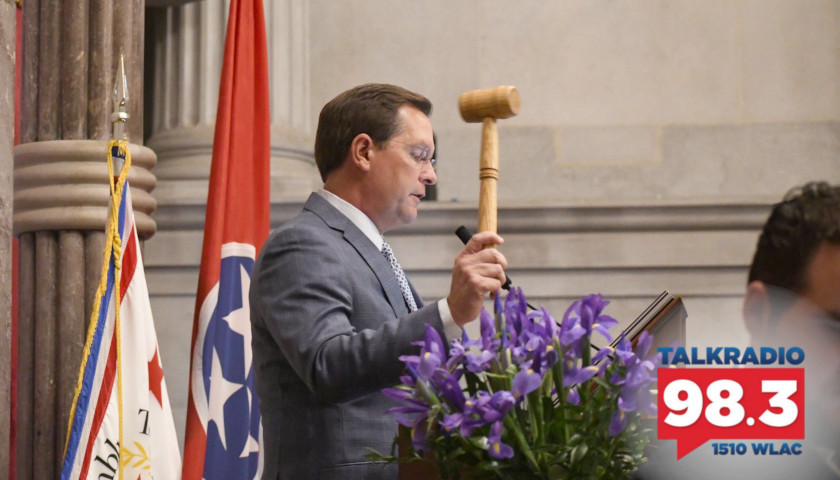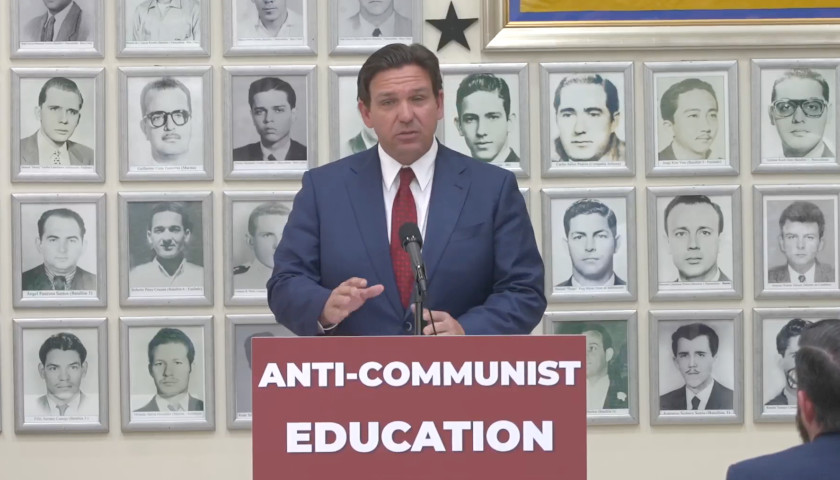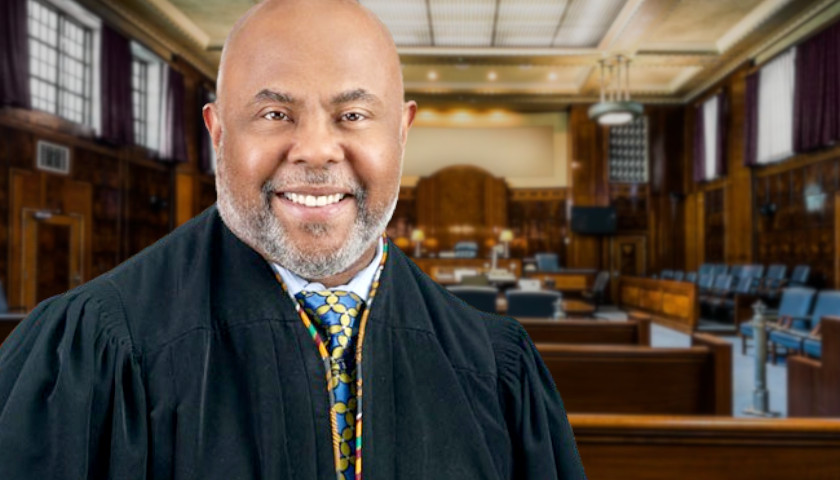Live from Music Row Wednesday morning on The Tennessee Star Report with Michael Patrick Leahy – broadcast on Nashville’s Talk Radio 98.3 and 1510 WLAC weekdays from 5:00 a.m. to 8:00 a.m. – host Leahy welcomed Tennessee House Speaker Cameron Sexton to the newsmaker line to discuss immediate bills that will purge Metro City Council, ban transgender sexual assignments for children, and the new deadline for filing.
Leahy: On our newsmaker line right now, Speaker of the Tennessee House of Representatives, Cam Sexton. Good morning Speaker Sexton.
Sexton: Good morning. How are you this day?
Leahy: We’re delighted to have you here. So here’s my first question for you. It took the U.S. House of Representatives 15 ballots over four days to select Kevin McCarthy as speaker of the House of the United States House of Representatives.
How many ballots did it take the Tennessee House of Representatives yesterday to elect you as the speaker of the 113th session of the Tennessee General Assembly?
Sexton: Just one for me and one ballot for Lieutenant Governor McNally.
Leahy: That shows a little bit of a contrast between the way the Tennessee House of Representatives is run and the U.S. House of Representatives. What are your big agenda items for this session of the Tennessee General Assembly?
Sexton: Yes. As a body, I think you’ll see the express lanes, and choice lanes, be talked about. I think you’ll see the trigger bill to be discussed quite a bit. I think there are a lot of different proposals coming on trying to clarify or expand that.
Leahy: Tell us what the trigger bill is.
Sexton: Yes, the trigger bill is a bill that was passed that has basically outlawed abortions in the state. There’s a lot of discussions around, even the side that passed the trigger bill said the life of the mother was included. People say, well, I don’t see it.
So there’s much discussion about there needs to be clarification on that and also clarification on the physicians having to prove their innocence to say you have to prove their guiltiness on the front end.
Leahy: That sounds like that will be pretty well discussed. What are you going to be doing on the issue of prohibiting transgender top and bottom surgeries on children by hospitals in Tennessee?
Sexton: There’s already a bill filed that would ban transgender sexual assignments for children even with the consent of the parents or permission of the parents that’s been filed.
I expect to get that out early and then hopefully we’ll have that passed by the end of February and have it law in the state of Tennessee to prevent that from happening.
Leahy: Do you see any surprises on the horizon in this session?
Sexton: There’s always some. We don’t know yet. We filed the bill yesterday on Metro Council. Leader Lamberth did go from 40 council members to 20. I think that caused a kind of a stir in the Metro government, which is not a bad idea sometimes.
Leahy: So interestingly enough that to me, I look at that, and there have been some reports in the press that this is punitive on the city of Nashville for not helping bring the Republican National Convention here to Nashville, Tennessee in 2024.
I look at that and I say, this just seems like good government in the sense said, how do you manage 40 members of a city council? Twenty seems more manageable. Your thoughts?
Sexton: I think the scenario I heard is if Congress had the per person that a Metro district does for a congressional district, you would have tens of thousands of congressmen in Washington. And Metro is the third-largest council in the United States. They’re very inefficient.
Even the business community thinks they’re inefficient, and a lot of the business community is supportive of the bill. People want to make it about the 2024 being turned down. Don’t forget they also turn down 2028 as well.
And it’s really about having a more efficient government; it’s about having better representation and a more broad support base than the 25 to 3,000 votes that you need to get elected on Metro right now.
Leahy: What do you think the odds of that passing are? And would there be any legal challenges to it?
Sexton: I don’t see them making a legal challenge because we’re capping it for all the metro governments, and there’s three of them, so it should be constitutional. It’s not going to be bipartisan, I can tell you that. But we hope to get that out the gate quickly and have that passed as well, and we’ll see what else comes down the pike.
There are other things that are going to be coming down against Metro to try to make them more efficient. And so they’re not going to like it, but we have oversight of them and they’re one of the keys to our economic development and we can’t let them go down the tank per se.
Leahy: Now, the other organizational change that you’ve made, is this, and listeners might say, well, is this a big deal or not? Apparently now, in the House, if you want a bill considered in this session of the General Assembly, you have to have it introduced by the end of this month. I think it’s different than previously done. Explain that a little bit to us, if you would, please.
Sexton: Yes. It’s the filing deadline, so you have to have your bills turned in to the clerk by January 31st. It’s a little quicker than normal. I want people to be prepared. They had all campaigns. They’ve had now two months since the campaign. They’ll have a whole other month in January. They can file 15 bills.
And so we want to get started. We want to get everything through the system and get it going. And there’s no need to delay how long people need to get bills to the clerk to get them in so we know what they are. So we moved that data up to hopefully move a little bit quicker and be able to move legislation more efficiently.
Leahy: Now it seems to me that since you’ve been Speaker since 2019, the cooperation between the state Senate and the state House has been greater. Do you see that cooperation continuing this session?
Sexton: I do. I think we’re learning how to govern together. When you first come in, you’re trying to learn and so they had different leadership then. I worked very hard to work with Lieutenant Governor McNally, who’s I think a great guy, a great statesman, worked well with the Senate, and is on the same pages on these big bills.
Metro and transgender sexual assignment surgeries, get on the same page with them. Let’s get these things done. And we also work well with Governor Lee.
I mean, don’t discount that. But at the end of the day, we still know that some of us will disagree, one of the three of us, or two or may disagree with the other, but we can sit down and have a conversation and work through those differences.
And sometimes we can, sometimes we can’t, but we never close the door on one another because of anything that’s serial or if we have a disagreement.
Leahy: There are 99 members of the Tennessee House of Representatives. The breakdown of this session is 74-70? How many Republicans are there?
Sexton: There are 75. We went from 73 to 75. So it’s 75 Republicans and 24 Democrats.
Listen to today’s show highlights, including this interview:
– – –
Tune in weekdays from 5:00 – 8:00 a.m. to the Tennessee Star Report with Michael Patrick Leahy on Talk Radio 98.3 FM WLAC 1510. Listen online at iHeart Radio.
Photo “Cameron Sexton” by Tennessee House of Representatives.









Since we are so all-fired interested in streamlining legislative bodies, when are we going to convert the Tennessee General Assembly from a bicameral legislature to a unicameral legislature?? After all, “When government grows beyond a certain size, it hinders economic growth”……